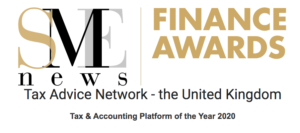Judges endorse the idea of seeking expert tax support
Another tax case won by HMRC highlights the need for directors and accountants to get specialist tax support when leaving their tax “comfort zone”.
In a recent Tribunal case one of the company directors was an accountant and the judges criticised him for misunderstanding some key tax rules. The judges considered that a reasonable director would have sought independent tax advice from an expert.
The case in question concerned connected companies that engaged sub-contractors to carry out construction works. Late filing penalties were first imposed in 2016 and then HMRC challenged the gross payment status of the companies’ contractors.
Finally, determinations were issued and appealed resulting in, eventually, the recent hearing before the First Tier-Tribunal (FTT) – which found in favour of HMRC.
So the FTT rejected a ‘reasonable defence’ argument, finding that the Director, even given his experience of the Construction Industry Scheme, should have checked the position with a tax expert: “This is far from a counsel of perfection. It is what a reasonable director who finds himself leaving his tax ‘comfort zone’ would do”.
Chairman of the Tax Advice Network, Mark Lee says:
“Of course we are happy to endorse this advice from the Judges. It is relevant, not just to reasonable directors, but also to reasonable accountants. Whenever they need to consider aspects of tax that they do not deal with on a routine basis (outside of their ‘tax comfort zone’), their professional obligations are clear. And this case confirms that. They must seek advice and support from a suitably experienced specialist tax expert”.
And this approach is also clearly set out in the Guide to Professional Conduct in Relation to Tax (PCRT). Compliance with PCRT is obligatory for the members of many UK accounting and tax bodies and for members of the Tax Advice Network.
Paras 2.11 and 2.12 state that:
A member must not undertake professional work which they are not competent to perform unless they obtain appropriate assistance from a suitably qualified specialist.
A member who is giving what they believe to be a significant opinion to a client should consider obtaining a second opinion to support the advice. Where the second opinion is to be obtained externally, due regard must be had to client confidentiality.
——
Our members, between them, cover every specialist tax area. You can choose who to approach and do so without giving us your details or paying a penny at FindATaxAdviser.online
—
And tax advisers with any specialist expertise are welcome to join the Tax Advice Network.
 My name is Mark Lee and I am the Chairman of the Tax Advice Network (founded in 2007). Before that I was Chairman of the Chartered Accountants’ Tax Faculty.
My name is Mark Lee and I am the Chairman of the Tax Advice Network (founded in 2007). Before that I was Chairman of the Chartered Accountants’ Tax Faculty.